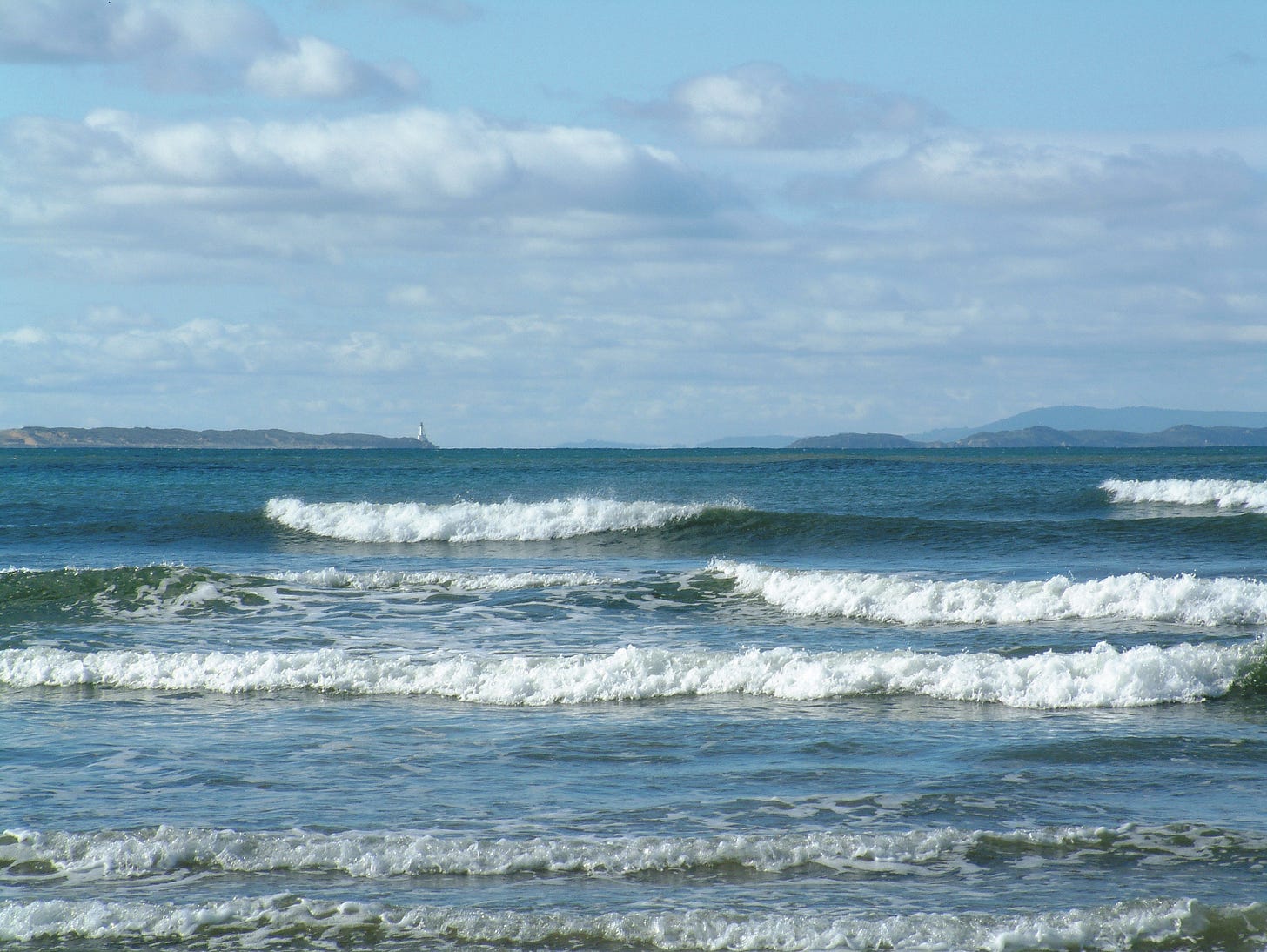After that, Leonard and I began to meet regularly. It was surely the oddest start to a friendship, and our friendship may have been one of the odder kind.
He liked good coffee but couldn’t be persuaded to set foot in the beachfront café – or any noisy, busy building. It reminded him of being ‘inside’, though that was many years before.
So, I’d meet him on the Ocean Grove beachfront at the appointed time with two double-shot lattes from the kiosk. We’d find a quiet bench, or spread my sarong and sit on the grassy terrace.
We must have looked an unlikely pair: the plump, well-dressed black woman and the skinny, scruffy white man – engaged in animated conversation punctuated by the occasional shriek of laughter (me) or hoarse chuckle (Leonard). I’d see folk walk by with a funny little smirk on their faces. We became a regular fixture, and I fancy that while some thought us odd, others found us rather sweet. A few times a passer-by would speak to us. Leonard would clam up and stare at the ground until they went away.
When the moment was opportune, I let slip that I’d once worked for Community Corrections in New South Wales, even worked in a prison. Leonard grunted: ‘Thought so … You’re bloody bossy enough,’ which he softened with a cheeky little grin and a glance to make sure I hadn’t taken offence. I hadn’t.
Slowly and without prying, I pieced together what had happened to my strange new friend. Although I present it here as a connected narrative, it took several weeks and litres of coffee. A remark here, an oblique reference there.
Leonard was a born horseman. He adored the big, sensitive animals, spent his youth riding, working with them, attending to their needs. He served his apprenticeship at a Thoroughbred stable, got his first race at nineteen. A skilled reader of horses and an intuitive race tactician, he made a name for himself, started to place well in local meets, then the bigger races. He raced all over Australia.
He was well aware that the sport he loved had a shady aspect: that behind the glamour of the track lay a ruthless industry. He knew of colleagues who had been ‘got at’. He knew that there were ways to impair or enhance a horse’s performance to produce a surprise outcome, beat the odds and rake in vast rewards. He kept away from all that. Any practice which might endanger his beloved animals was unthinkable.
One of Leonard’s regular rides was a big chestnut mare, Bessie Brown. Strong and brave, she had more heart than any horse he had ridden – a true stayer. Together they could sit behind the leaders over sixteen furlongs, wear them down and still have enough in the tank for the finish.
The morning of their last race, Leonard could tell something was wrong. Bessie was restless, strangely nervous and skittish.
They were on the back straight, in their usual position, running wide. Suddenly he felt her gait change. It was as if she were galloping in slow motion. The rest of the field had passed them by when she gave a great sigh, stumbled and fell. Leonard was thrown clear, rolled and sprang to his feet. By the time he was at her side, Bessie was dead.
Heart failure, the vet said. The routine tests were done; nothing untoward was found. Just one of those things that happen on the track.
Leonard’s best friend was Joey, a young trainer at the same stable. They lodged together, worked together, went on fishing trips together. By Leonard’s account, he and Joey were inseparable.
I’m sure they were more than friends. This was back in the Eighties; homosexuality had been decriminalised in Victoria, but it was wise to keep these things to oneself. AIDS was a death sentence, and openly gay men were stigmatised.
Leonard caught Joey, the night before a big race just months after Bessie’s death, in the stall with his new horse, about to inject a substance that he refused to identify. The sense of betrayal was intense and personal. There was an angry confrontation in the yard, a fight. Joey went down. His head struck the concrete. He died.
Leonard was only twenty-three. He knew horses, knew racing, but little else of the world. The owners’ only concern was to protect themselves: if that meant presenting their jockey in the worst possible light, then so be it. The Crown alleged that Joey’s killing was driven by professional and personal jealousy. The evidence to the contrary somehow never came to light.
Leonard didn’t fight back. Devastated by the death of the man he loved, he felt that he deserved it all – a life behind bars for the life taken. He pleaded guilty and got the expected sentence, with a non-parole period of twenty years.
If what he told me is true, and I’ve no reason to believe otherwise, a just outcome would have been a verdict of manslaughter and a sentence of less than ten, given the mitigating circumstances.
‘I was green alright,’ reflected Leonard. ‘No bloody idea about anything, ’cept horses. Still – did the crime, did the time, as they say.’ He stared at the horizon with a sad little smile.
As autumn turned to winter, he suggested moving our coffee mornings to his place, rather than ‘freezing our arses off’ at the beach.
To my surprise, I accepted. What would Leonard’s ‘place’ be like?
Next week in Beach Walker:
Chapter 7: Revelations
Leonard welcomes Grace to his home. It doesn’t quite match her expectations.



